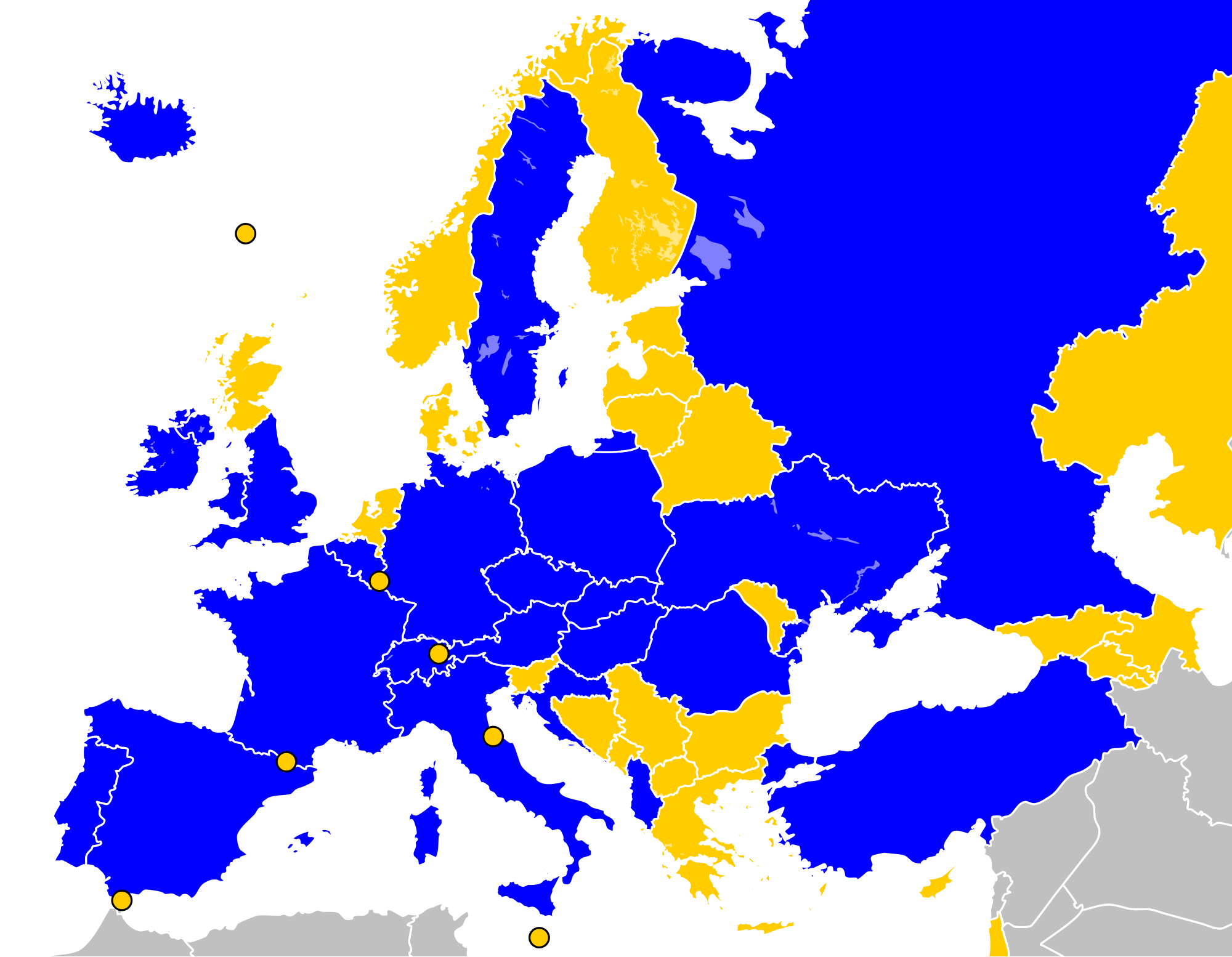
[Sports] UEFA Euro 2016 predictions – Comments
Last week we published the results of our prediction model for UEFA Euro 2016. Here are a few comments.
This Euro is undecided
Our model gives fairly close probabilities of winning. To us, this suggests that the competition is fairly open and that no team is a clear favorite before the competition starts (we really hope to see that change after a few matches!)
One could object that this merely shows that our model is unable to predict an outcome with adequate confidence, so we ran the simulations after injecting an artificially low variance in our model, and results for the top teams turned out to be very similar: no clear favorite emerged.
Historically, the European Championship has always been somewhat undecided. Whereas only 8 different teams ever became World Champions (20 editions of the World Cup were held), 9 different teams have already won a European Championship in just 14 editions! In some cases, complete underdogs eventually won the title (for example Denmark in 1992 or Greece in 2004).
France is one of the favorites
The home team is every other’s model favorite! Check out Goldman Sachs’ or a model built by Austrian researchers based on bookmakers’ odds. Clearly, the home advantage is key here, although recently France has proven able to score quite a number of goals, which is an important feature of our model. The model’s favorite is Belgium (who are, the start of the competition, 2nd in the Fifa rankings), but Germany, Spain and England are very close.
Interestingly, even if our model selects France as one of its favorite, it predicts that the group phase won’t be as easy as it seems. For example, the most likely scenario for the opening match is a draw. The probability of reaching the second round is high (86%), but it’s only the fifth highest of values (which might be surprising if you consider that France’s first round opponents are really far behind in the Fifa/Elo rankings). This is very different from other models and bookies, who make France a very heavy favorite to end up at the first place of the group.
As a supporter of France, this reminds us a few (good) memories. In 2000, France only finished second of its group to the Netherlands (and still won the competition), while in the 2006 World Cup, France barely qualified among relatively weak teams, and still managed to reach the final.
Zlatan may not be enough
Altough Sweden, partly thanks to its legendary striker Zlatan Ibrahimovic, is generally said to be a fairly good team, it has the lowest probability of reaching the round of 16 (24.1%), slightly behind Iceland and Albania. In fact, Sweden was very unlucky during the draw and ended up in the so-called “group of death” along with two top tier teams (Belgium and Italy), and an outsider (Ireland) that our model predicts not so bad.
Are Switzerland and Hungary undervalued?
The biggest difference between our model and the bookies’ odds (or the other models) is the relatively high probability we put on Switzerland’s win (6% for us, 1% for Goldman Sachs for instance). It’s hard to really say why our model predicts they’ll fare so well, but we’re definitely impatient to see if this checks out 🙂
Our model also says Hungary is generally under-estimated: to it, the heirs of the “Magikus Magyarok” might very well fight for second place in Group F, while in most predictions they finish dead last.
EDIT: a previous version of this article presented France as the model’s favorite, which was the consequence of a bug that occurred for the second-round probabilities. It is now corrected. Other conclusions are unchanged.